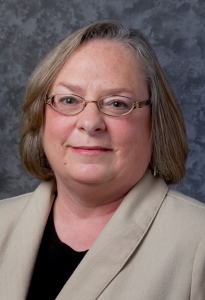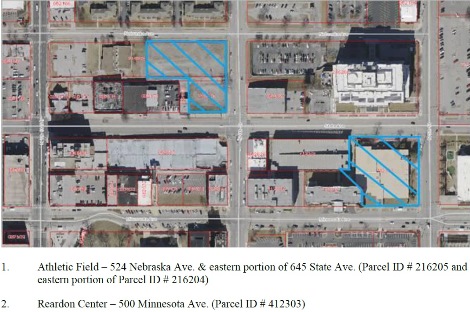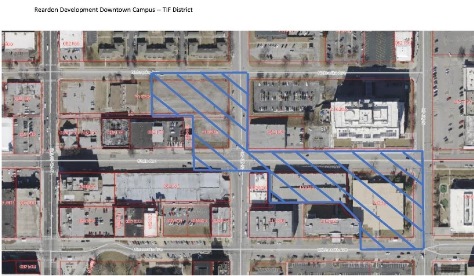U.S. Sen. Pat Roberts, R-Kansas, is one of the sponsors of a bipartisan bill that would standardize the designation, funding and management of National Heritage Areas across the country.
The National Heritage Area Act would establish an annual authorization of $1 million for each existing and future National Heritage Area, providing stability to National Heritage Areas.
In Kansas, this legislation would strengthen Freedom’s Frontier, which contains heritage areas including the Quindaro townsite and the Brown v. Board of Education National Historical site.
In 2019, Quindaro, now a part of Kansas City, Kansas, was designated a National Commemorative Site, after legislation sponsored by Sen. Roberts was signed into law as part of a larger lands package.
Other sponsors of the legislation include Sen. Debbie Stabenow, D-Michigan, Sen. Gary Peters, D-Michigan, Sen. Martin Heinrich, D-New Mexico, and Sen. Ed Markey, D-Massachusetts.
“Our National Heritage Areas are so important for preserving the history of not only Kansas, but our entire country,” Sen. Roberts said in a news release. “This legislation will help strengthen Freedom’s Frontier to ensure our future generations can continue visiting this important heritage area with a rich history from the Civil War to the civil rights movement.”
“Sen. Roberts’ leadership is a critical factor in Freedom’s Frontier’s success. His commitment to preserving and sharing our history is paramount. His support of public-private partnerships is steadfast,” said Jim Ogle, executive director of Freedom’s Frontier National Heritage Area.
National Heritage Areas are public-private partnerships that commemorate and conserve resources important to the nation’s culture and history. The 55 National Heritage Areas designated by Congress collectively support more than 148,000 jobs every year and add more than $12.9 billion to the U.S. economy every year in cultural heritage tourism. Every federal dollar is matched with an average of $5.50 in nonfederal funding, making the National Heritage Area program one of the Interior Department’s most cost-effective initiatives.
Currently, there is no common criteria for the funding, management, or designation of National Heritage Areas across the country. Funding authorizations for 45 of the country’s 55 National Heritage Areas are also set to expire by 2024, including 30 by 2021.
“National Heritage Areas not only commemorate our nation’s history, but they also create jobs and boost tourism for communities across the country,” Sen. Stabenow said. “This legislation ensures that National Heritage Areas like Michigan’s own MotorCities National Heritage Area can continue sharing our rich history for generations to come.”
“The MotorCities National Heritage Area not only recognizes Michigan as the state that transformed the automotive world, but it also inspires future generations of scientists, public servants, artists and tradesmen to keep inventing and innovating,” Sen. Peters said. “This bipartisan bill reaffirms the importance of National Heritage Areas to our country and helps ensure these regions have support in the future.”
“Our arts and culture in New Mexico are beautiful, complex, and truly unique. The Northern Rio Grande National Heritage Area draws visitors from around the globe and gives context and meaning to our New Mexican way of life,” Sen. Heinrich said. “I am proud to join this bipartisan effort to support public and private partnerships that promote our state’s natural and cultural resources for generations to come.”
“Our National Heritage Areas are treasures, commemorating the beauty and majesty of our country. They are job creators, engines of economic activity, and irreplaceable markers of our history,” Sen. Markey said. “From Freedom’s Way, to Essex, to the Upper Housatonic, Massachusetts is blessed with some of the nation’s most beautiful landscapes, and this legislation will help ensure future generations can enjoy these most special of places.”
“The introduction of the bipartisan National Heritage Area Act ensures that the 55 National Heritage Areas across the nation will remain economic catalysts in their communities for years to come,” said Sara Capen, chair of the Alliance of National Heritage Areas. “We are grateful for the leadership of U.S. Senators Stabenow, Roberts, Peters, Heinrich, and Markey in recognizing the longstanding value that National Heritage Areas bring to communities across America.”
“National Heritage Areas are vibrant public-private partnerships that enable place-based preservation and interpretation of stories and resources that are regionally distinct and nationally significant,” said Alan Spears, senior director of cultural resources, National Parks Conservation Association. “S. 3217, the National Heritage Area Act, standardizes the way heritage areas are designated, managed and assessed, enhancing the effectiveness of an already successful program. NPCA applauds Senators Stabenow, Roberts, Peters, Heinrich, and Markey for their leadership on behalf of this program and will work to support timely passage of the bill.”
This bill provides a uniform annual authorization of $1 million for each existing and future National Heritage Area; establishes a standardized set of criteria for the designation of new National Heritage Areas; and establishes a National Heritage Area System that clearly defines an oversight structure between National Heritage Areas and the Interior Department. The text of the bill can be read at https://www.stabenow.senate.gov/imo/media/doc/S3217.pdf.
The National Heritage Area Act is supported by the Alliance of National Heritage Areas and the National Parks Conservation Association (NPCA). Rep. Paul Tonko of New York is the author of the House companion bill, HR 1049, which is co-sponsored by 206 members in the House.



